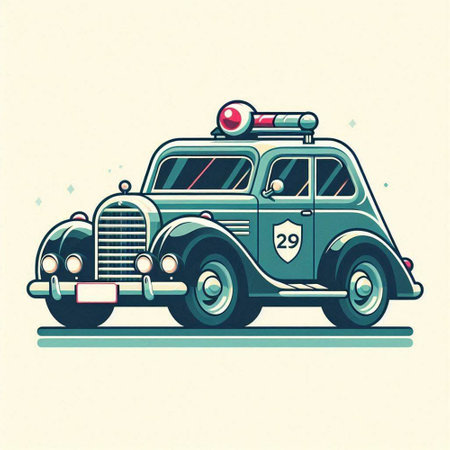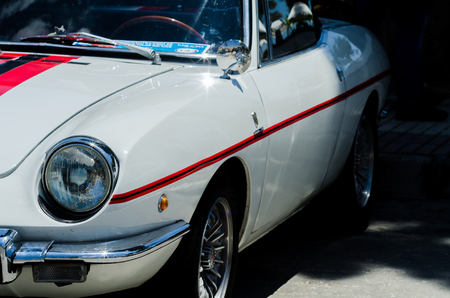Introduction to UK Car Clubs
The United Kingdom boasts a rich tapestry of motoring history, and at the heart of this legacy lie the nation’s car clubs. These organisations have played a pivotal role in both celebrating and preserving classic British cars, weaving themselves into the very fabric of British automotive culture. Dating back to the early 20th century, UK car clubs began as informal gatherings of like-minded enthusiasts, often meeting at local pubs or countryside laybys to share stories, technical know-how, and an abiding passion for British engineering. Over time, these gatherings evolved into formal clubs dedicated not only to specific marques—such as MG, Jaguar, or Austin—but also to broader movements within motoring heritage.
Car clubs in Britain are much more than just social groups; they serve as custodians of tradition, safeguarding the craftsmanship and spirit that define classic British cars. Their significance extends beyond mere ownership—they foster a sense of camaraderie among members and ensure that valuable knowledge about maintenance, restoration, and historical context is passed down through generations. Through club events, rallies, and meticulously organised concours d’elegance, these communities keep the golden age of British motoring alive and relevant in a rapidly changing world.
To better understand their cultural impact, here’s a glance at how UK car clubs have evolved over time:
| Era | Key Developments |
|---|---|
| 1920s–1940s | Formation of early enthusiast groups; focus on camaraderie and sharing mechanical tips |
| 1950s–1970s | Rise of marque-specific clubs; increased participation in rallies and motorsport events |
| 1980s–2000s | Expansion into preservation efforts; hosting classic car shows and educational workshops |
| 2010s–Present | Emphasis on digital networking; greater advocacy for heritage conservation and inclusion of younger members |
This storied evolution highlights how deeply embedded car clubs are within Britain’s motoring identity—a testament to their enduring role in preserving both vehicles and values from bygone eras.
2. Uniting Enthusiasts and Preserving Community Spirit
Across the United Kingdom, classic car clubs stand as cherished hubs where passionate individuals gather to celebrate and preserve Britain’s automotive heritage. These clubs do far more than simply showcase gleaming Jaguars, MGs, or Austins; they foster a strong sense of camaraderie among their members, forming vibrant communities rooted in shared nostalgia and love for British motoring.
UK car clubs provide a welcoming space for enthusiasts from all walks of life. Whether you’re a seasoned mechanic with oil-stained hands or a newcomer drawn by the charm of chrome bumpers and walnut dashboards, these clubs offer opportunities to exchange knowledge, swap stories from the golden age of British motoring, and pass on essential skills for restoration and maintenance.
| Community Activity | Description | Typical Venue/Setting |
|---|---|---|
| Monthly Meets | Casual gatherings to display cars and share experiences | Local pubs or village greens |
| Technical Workshops | Hands-on sessions teaching repair & restoration skills | Club garages or member workshops |
| Heritage Drives | Group drives through scenic British countryside routes | Historic roads, national parks |
| Storytelling Nights | Evenings dedicated to sharing motoring tales from years past | Community halls or clubhouses |
This communal spirit is quintessentially British, echoing the days when neighbours would lend a spanner or share a cup of tea over an open bonnet. In an era increasingly dominated by digital connection, these clubs keep alive the tradition of face-to-face interaction—reminiscing about memorable journeys to Goodwood, recounting mishaps at the MOT station, or debating the merits of Lucas electrics versus Smiths instruments. Through these treasured connections, UK car clubs ensure that the legacy of classic British cars—and the values they represent—remain alive and thriving for generations to come.

3. Knowledge Exchange and Technical Support
One of the cornerstones of UK car clubs’ enduring legacy is their commitment to knowledge exchange and technical support, ensuring that classic British cars remain on the road for generations to come. These clubs serve as invaluable hubs where seasoned enthusiasts and newcomers alike share maintenance techniques, offer advice, and collectively troubleshoot the unique challenges posed by vintage motors. The transfer of hands-on expertise is often deeply rooted in traditional British craftsmanship, with members eager to pass down time-honoured restoration skills that might otherwise be lost to history.
Sharing Maintenance Techniques
Regular club gatherings, workshops, and online forums provide a space for members to demonstrate practical know-how—whether it’s setting carburettors on a Triumph TR6 or adjusting valve clearances on an Austin-Healey. Such sessions often highlight “British bodge” ingenuity: clever workarounds using period-correct materials and methods.
Sourcing Rare Parts
For many classic car owners, finding authentic spares can be a major hurdle. UK car clubs frequently maintain extensive parts networks, connecting members with trusted suppliers and even facilitating group buys for hard-to-find components. Some clubs have established relationships with local artisans who can remanufacture obsolete parts using traditional techniques.
| Challenge | Club Solution |
|---|---|
| Finding rare Lucas electrical components | Member-to-member swaps & sourcing from specialist traders at club events |
| Restoring original Smiths instruments | Workshops led by instrument restorers with decades of experience |
| Sourcing period-correct upholstery fabrics | Partnerships with heritage suppliers & recommendations in club newsletters |
Passing Down Restoration Skills
The preservation of classic British motors hinges on passing down skills honed over decades—be it hand-forming aluminium panels for a Jaguar E-Type or re-wiring a Morris Minor. Many clubs actively mentor younger members through apprentice-style programmes, ensuring continuity of expertise within the community.
The Human Touch: Stories from the Workshop
It’s not uncommon to find multi-generational teams working side-by-side at club-organised restoration days, swapping stories as much as tools. This camaraderie fosters a spirit of collective pride in keeping Britain’s motoring heritage alive, one lovingly restored vehicle at a time.
4. Organising Meets, Shows, and Touring Events
One of the most evocative ways UK car clubs help preserve classic British cars is through their tireless organisation of meets, shows, and touring events. These gatherings are woven into the very fabric of British motoring culture, spanning from informal village green displays to more elaborate national shows and countryside runs. Each event is an opportunity for enthusiasts to show off meticulously restored vehicles, share restoration tips, and relive the golden age of British motoring.
Local meets often take place in quintessentially British settings—think cricket pavilions, historic market squares, or the grounds of stately homes. Here, members gather over cups of tea, swapping stories about their latest project or seeking advice on elusive parts for a Triumph or Morris Minor. Such occasions foster camaraderie and ensure that technical know-how is passed down from seasoned tinkerers to newcomers eager to learn.
On a larger scale, national shows draw crowds from across the country and even abroad. The likes of the Goodwood Revival or the NEC Classic Motor Show are not merely exhibitions but full-scale celebrations of Britain’s rich automotive heritage. Clubs set up displays featuring rare models, organise concours competitions, and invite guest speakers—often engineers and designers who played a part in shaping these iconic machines.
Touring events add another dimension to club life. Organised drives through picturesque countryside routes evoke memories of classic rallies from decades past. Participants experience first-hand the pleasure of driving a well-maintained classic along winding B-roads and scenic moorlands. These runs reinforce the importance of keeping classics roadworthy and visible to the wider public.
Types of Club Events
| Event Type | Description | Typical Venue |
|---|---|---|
| Village Green Meet | Informal local gathering; members display cars and socialise | Village greens, pubs, community halls |
| National Show | Large-scale exhibition with concours judging, trade stands, guest speakers | Exhibition centres (e.g., NEC), race circuits (e.g., Goodwood) |
| Countryside Run | Organised drive along scenic routes; includes stops at landmarks or cafes | Various rural routes; start/end at clubhouses or historic sites |
| Themed Rally | Events celebrating specific marques or anniversaries; may include fancy dress or period themes | Stately home grounds, heritage sites |
The Value of Tradition and Community Spirit
Through these diverse events, UK car clubs do much more than simply display classic vehicles—they uphold traditions, build friendships across generations, and keep the spirit of British motoring alive. Whether it’s rain-soaked bonnet polishing at a country fair or a spirited dash through the Cotswolds in convoy, these activities are crucial in ensuring classic British cars remain cherished on our roads rather than consigned to dusty garages or museum corners.
5. Advocacy and Collaboration with Heritage Organisations
One of the most significant contributions of UK car clubs to the preservation of classic British cars lies in their robust advocacy and collaborative efforts with heritage organisations. These clubs do far more than simply organise rallies or provide technical advice; they actively engage with museums, heritage bodies, and even government agencies to champion the cause of historic motoring. This collective action ensures that the stories, craftsmanship, and engineering behind these cherished vehicles are not lost to time, but instead celebrated and protected for future generations.
The Power of Partnerships
Over the years, car clubs have forged strong partnerships with notable institutions such as the National Motor Museum at Beaulieu, the British Motor Museum in Gaydon, and Historic England. Through joint exhibitions, educational initiatives, and restoration projects, these collaborations bring classic cars into the public eye, inspiring new enthusiasts while also providing invaluable resources for research and conservation.
Working with Government Agencies
Car clubs play a pivotal role in representing enthusiasts’ interests when it comes to legislation affecting historic vehicles. From vehicle registration policies to emissions regulations, club representatives regularly liaise with governmental bodies like the DVLA and the Department for Transport. Their advocacy helps shape policy to ensure that vintage motors can continue to grace Britain’s roads without undue hindrance.
Examples of Advocacy and Collaboration
| Organisation | Type of Collaboration | Impact on Classic Car Preservation |
|---|---|---|
| National Motor Museum | Joint Exhibitions & Restoration Projects | Increases public awareness; supports hands-on conservation work |
| Historic England | Heritage Listings & Technical Guidance | Offers official recognition; secures funding for preservation |
| DVLA | Policy Advocacy & Registration Support | Makes classic car ownership practical; protects against restrictive regulation |
Cultural Ambassadors for British Motoring Heritage
By working closely with these organisations, car clubs act as cultural ambassadors for Britain’s motoring past. Whether lobbying for favourable legislation or participating in museum curation, their efforts ensure that classic British cars remain an enduring part of the nation’s living heritage—admired not just for their aesthetics or performance, but as tangible links to our shared history on four wheels.
6. Challenges in the Modern Era
Despite the passion and dedication of UK car clubs, preserving classic British cars in the modern era presents a unique set of challenges. Evolving legislation surrounding emissions, safety regulations, and environmental concerns frequently threaten the freedoms once enjoyed by classic car enthusiasts. For instance, Low Emission Zones (LEZ) and Ultra Low Emission Zones (ULEZ) increasingly restrict where older vehicles can be driven, particularly in cities like London. Moreover, societal attitudes are shifting—there’s a growing emphasis on sustainability and reducing carbon footprints, which sometimes casts classic motoring in a less favourable light.
Modern Challenge |
Impact on Classic Cars |
Car Club Adaptations |
|---|---|---|
| Stricter Emissions Legislation | Restricted access to city centres; higher costs for compliance | Lobbying for exemptions; promoting cleaner fuels |
| Declining Public Perception | Reduced interest among younger generations | Educational outreach; youth engagement programmes |
| Sourcing Authentic Parts | Difficulty maintaining originality; increased restoration costs | Pooling resources; creating parts exchanges and reproductions |
| Insurance Complications | Higher premiums; limited coverage options | Negotiating group insurance schemes; expert guidance for members |
UK car clubs have responded to these hurdles with remarkable ingenuity. Many have established close working relationships with policymakers to ensure the voice of the classic car community is heard during legislative discussions. Clubs also invest heavily in educational initiatives, aiming to spark enthusiasm among younger drivers who may never have experienced the tactile joys of carburettors and leaf springs. Furthermore, they facilitate access to rare parts through collective buying power or by commissioning small-scale manufacturing runs. In this way, UK car clubs not only adapt to modern realities but actively shape them, ensuring that classic British cars remain a cherished—and viable—part of Britain’s motoring landscape.
7. Conclusion: Sustaining the British Classic Car Legacy
UK car clubs play an irreplaceable role in preserving and celebrating classic British cars, ensuring that these mechanical treasures remain more than just museum pieces—they are living, breathing icons of British motoring heritage. Through a blend of hands-on restoration, vibrant social gatherings, and educational outreach, car clubs weave classic vehicles into the very fabric of British culture, keeping their stories alive for both present enthusiasts and future generations.
These organisations foster a sense of belonging among members, passing down not only technical knowledge but also cherished memories and traditions linked to the nation’s motoring past. The table below illustrates how UK car clubs contribute to sustaining the legacy of classic cars across different aspects:
| Aspect | Car Club Contribution |
|---|---|
| Technical Preservation | Workshops, parts sourcing, restoration advice |
| Cultural Heritage | Historic rallies, displays at local events, storytelling |
| Education | Youth engagement programmes, school visits |
| Community Spirit | Regular meets, charity runs, social drives |
The enduring impact of UK car clubs is evident in every carefully restored MG, purring Jaguar or stately Rolls-Royce spotted on British roads today. By championing classic cars as symbols of national pride and shared history, these clubs ensure that the artistry and engineering brilliance of Britain’s automotive golden era will continue to inspire long into the future. For anyone who has ever felt the thrill of an engine turning over after years of slumber or shared a story over tea at a club meet, it’s clear: the legacy of British classic cars is safe in passionate hands.


